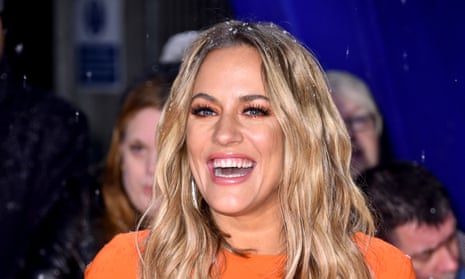The media has failed to learn the lessons of Caroline Flack’s death and must take responsibility for coverage of public figures struggling with mental health problems, the presenter’s mother has said.
Speaking before the release of a Channel 4 documentary that seeks to present a more nuanced portrait of her “lovely, ordinary” daughter, who took her own life in February last year, Christine Flack said she hoped the outlets that “wrote all the horrible things about Caroline” would “take away that before they print anything, at least find out if it’s true. It’s someone’s life, it’s someone’s child, it’s someone’s sister or brother.” She added: “I don’t think they’ve learned yet.”
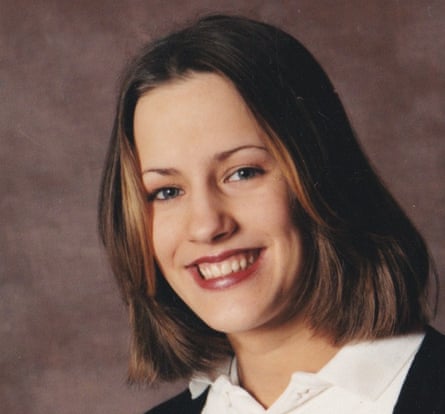
Christine said there was a risk that speaking out would “lead to a backlash”. “You are frightened to say anything, or even I shouldn’t say what I’m saying now,” she said. “But do you know, someone’s got to say something at some time and not be frightened … because of what the papers will do to you.”
She pointed to her own experience when she had gone to her daughter’s home after the incident that led to Caroline’s arrest on charges of assaulting her boyfriend Lewis Burton, and before the Sun ran a front-page picture of Caroline’s bedroom on 1 January with the headline “Flack’s bedroom bloodbath”. The picture showed the result of Caroline’s self-harm rather than the incident with Burton.
“They followed me and two other 70-year-olds across London one night after I cleaned up the blood in Carrie’s flat, that’s how bad they were,” Christine said. “No, they haven’t changed.”
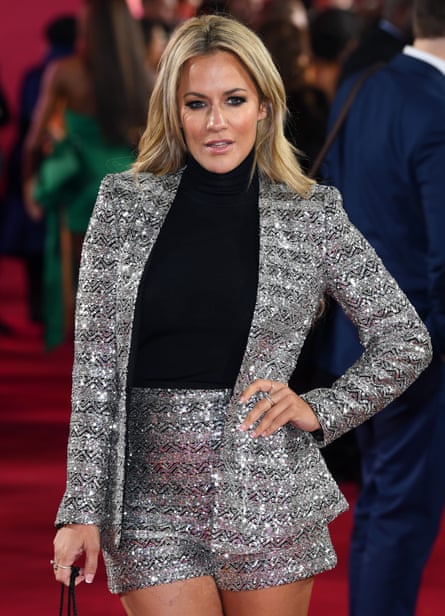
She described the abrupt change in tone in some tabloids after her daughter’s death and as criticism of the media became part of the story – as well as allegations that the police and Crown Prosecution Service had mishandled the case, a claim that official reviews said were unfounded. “The same papers that wrote all the horrible things about Carrie, after she died got in contact with me to say, oh we’d love to do a lovely article about her. And you think: what? I don’t understand this.”
The film, Caroline Flack: Her Life and Death, will be shown at 9pm on Wednesday 17 March. It comes a time of renewed scrutiny of how parts of the media cover mental health problems, and in particular the treatment of young women in the public eye. After the release of a US documentary exploring coverage of Britney Spears in the 2000s, the Duchess of Sussex’s comments in her interview with Oprah Winfrey prompted calls for greater care over the handling of the issue – alongside some responses casting Meghan as a liar.
“You can see what’s going on now with certain people in the press,” Christine said at an event before the release of the Meghan and Harry interview. In the film, she said of her daughter: “She wasn’t perfect but she didn’t have any bad in her. I can’t imagine her writing a nasty thing about someone. And everything that was written about her hurt her. And we’d say ‘don’t read it’. But it’s so easy to say, because you do read it, don’t you?”
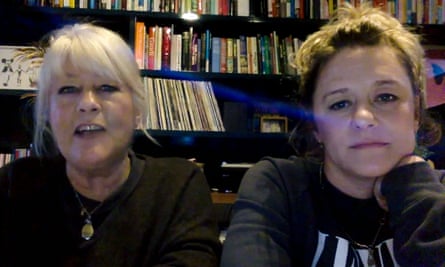
While Christine Flack and Caroline’s twin sister, Jody, were critical of media coverage, they also pointed to the dangers of social media for a vulnerable person in the public eye.
“When I was young if you were bullied at school you could get away from it,” Christine said. “You can’t get away from it now because it follows you home, it follows you on your phone. Carrie was the worst one – she looked at her phone all the time. It took her over, what was being said. And there could be 30 nice things said, one bad thing said, and that was it.”
She said of social media platforms: “They failed to protect anybody. I think we know it’s Caroline because she’s my daughter and Jo’s sister, but they don’t protect anyone. They don’t protect young girls.”
She said she saw the events of Christmas 2019, and her relationship with Burton, as triggers of a wider crisis her daughter was facing prompted by low self-esteem and her high profile. “Carrie’s state of mind was such that any of those things could have done it,” she said. “She just hated the thought that people thought she was this awful person.”
Jody said she “used to tell Carrie she should do a different job. But she always just proved me wrong. She was doing what she did best, and she loved it, and it was completely the wrong advice.”
Her sister’s commitment to being a presenter meant her life was bound to be difficult, she said. “Life would have been a lot easier if she’d done a different job. But Carrie was never going to have an easy life. She wasn’t built to do that.”
The hardest part of her death, she said, was wondering “could it have happened any differently if we’d done things differently?”
She said: “It’s hard to imagine a closer bond than twins. It’s a different world now.”
Anna Blue, a TV producer and close friend of Caroline’s, told the film-makers that the contradictions in her desire for fame were never reconciled. “Sometimes people ask if she wanted to be famous, which is a really good question,” she said. “And she did want to be famous, but she just wasn’t emotionally wired to deal with all the problems that came with being famous.”
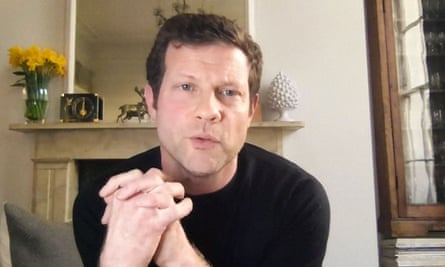
The presenter Dermot O’Leary, also a friend, said the feedback loop of her position in the public eye was part of the problem. “It was tough, it hurt – sadly as Caroline got more famous I think she became addicted to affirmation, and all that terrible maelstrom ended up with us on this sofa talking to you about her now,” he said. “She didn’t have a bad bone in her.”
While making the documentary was painful at times, Christine said, the film-makers Charlie Russell and Dov Freedman had “made this year bearable, because it was someone we could talk to”. She said she wanted “to show Carrie in a positive light … What was shown at the end wasn’t her. She wasn’t perfect but that wasn’t her.”
The version of Caroline she remembered, she said, was “this positive, nice person, and my daughter, and a sister, she never changed and she was good to us and lovely”.
Anna Blue said her life had only been enriched by their relationship. “I just won’t ever forget that she made my life so much more fun than it ever would have been,” she said. “I’ve never met anyone like her. I’ll never meet anyone else like her.”
In the UK and Ireland, Samaritans can be contacted on 116 123 or email jo@samaritans.org or jo@samaritans.ie. In the US, the National Suicide Prevention Lifeline is 1-800-273-8255. In Australia, the crisis support service Lifeline is 13 11 14. Other international helplines can be found at www.befrienders.org.
